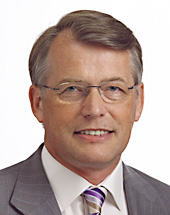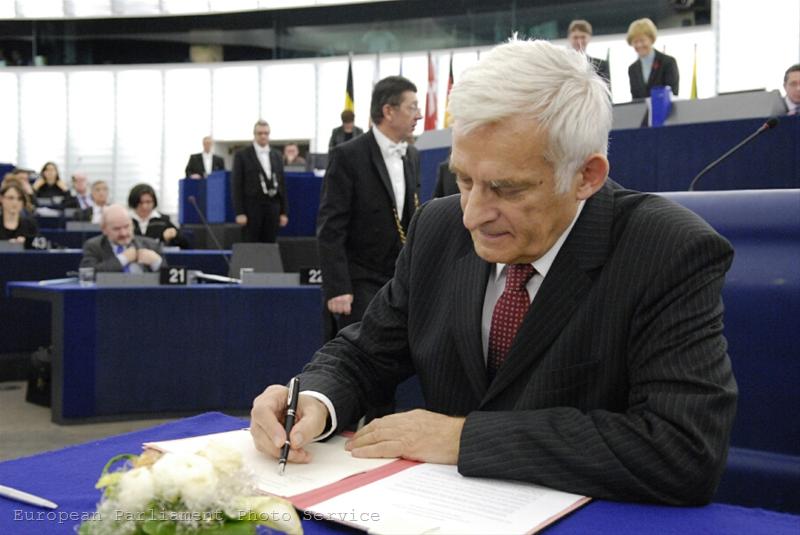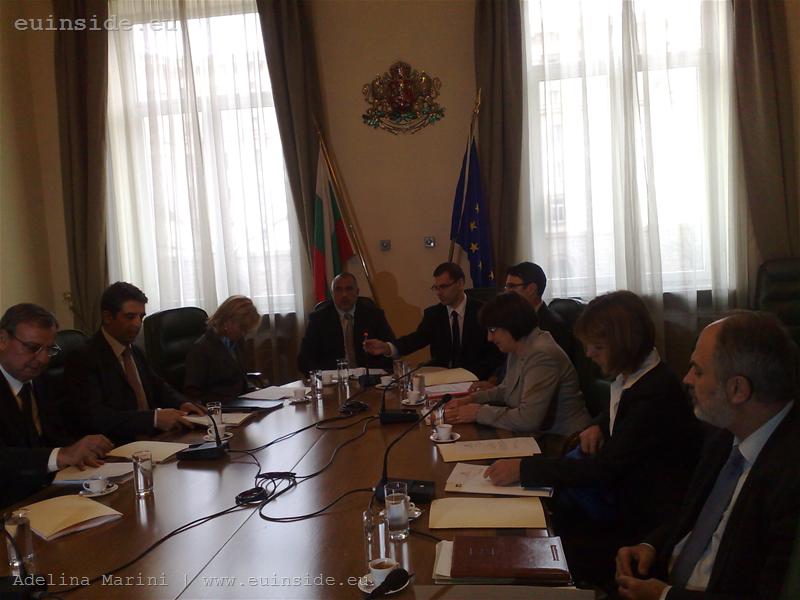The dispute over the budget continues
Adelina Marini, January 20, 2006
 In June last year, during one of the heartbreaking European councils in Brussels when the EU leaders tried to agree on the Financial perspectives, the European parliament (EP) already had the so called interinstitutional agreement, giving the EP more rights on financial issues. If you remember, when our accession treaty was being voted on the 13th of April, it was this agreement that became subject of bargaining so that our treaty was to be approved by the European People's Party (EPP) and the Green party. The opinion of the EP is very important so that the deal for the budget is to be approved because, otherwise, the MEP's will have to distribute the budget on an annual basis until an agreement is negotiated for the next 7-year period. As we know very well this budget does not include Bulgaria and Romania or, in other words, in such a scenario 27 countries will have to share the money for 25. That's why I asked the German MEP Reimar Boege why does he want a change in the agreement? He is deputy president of the Budget and Finance Committee in the EP and has drafted a resolution in which he insists a change in the current agreement for the budget for 2007-2013.
In June last year, during one of the heartbreaking European councils in Brussels when the EU leaders tried to agree on the Financial perspectives, the European parliament (EP) already had the so called interinstitutional agreement, giving the EP more rights on financial issues. If you remember, when our accession treaty was being voted on the 13th of April, it was this agreement that became subject of bargaining so that our treaty was to be approved by the European People's Party (EPP) and the Green party. The opinion of the EP is very important so that the deal for the budget is to be approved because, otherwise, the MEP's will have to distribute the budget on an annual basis until an agreement is negotiated for the next 7-year period. As we know very well this budget does not include Bulgaria and Romania or, in other words, in such a scenario 27 countries will have to share the money for 25. That's why I asked the German MEP Reimar Boege why does he want a change in the agreement? He is deputy president of the Budget and Finance Committee in the EP and has drafted a resolution in which he insists a change in the current agreement for the budget for 2007-2013.
REIMAR BOEGE: The deal is part of the interinstitutional agreement. The EP does not only discuss figures but also priority policies and reforms which need to be implemented, annual budgets, financial perspectives. And it's this point where we have a lot of work to do because the European Council had no time for this. If the figures are low, as they are, we need flexibility in the budgetary policy. We have to ask ourselves what will happen to the clause for revision of the budget which was being vaguely mentioned by the Council, based upon a proposal of the Commission but actually there is not solution to the issue and it is important to know what the content of this revision clause would be. There are still a lot of elements which need to be negotiated after the Council has reached a common position. Beside this it is absolutely clear that without the EP there's no agreement. European society makes a very big mistake thinking that whatever the Council decides - that' it. But it's not, the Council has reached a common position and the EP has to approve it.
- Do you think that the deal might be blocked in the EP?
REIMAR BOEGE: It's not about blocking but about negotiations for specific changes.
- What will happen if the Parliament rejects the agreement and negotiations begin from the start? How much time this might take?
REIMAR BOEGE: We will not reject all the details, of course we know very well where the thin red lines are. But in it's current form the agreement definitely needs serious change. This is part of the negotiations which will continue in the next 3 months.
- As an acceding country Bulgaria is very sensitive on the issue because, you know that if there's a delay in approving the budget, this would reflect very bad on Bulgaria and Romania?
REIMAR BOEGE: I don't believe it. Look, when we've negotiated in 1999 after the Berlin council on Agenda 2000, the resolution of the agreement has been approved in May 1999 and nevertheless the programmes on Agenda 2000 started in time. So, this is definitely not going to be a problem and it's very clear that even if negotiations prolong, we will in parallel work on the legislative changes that are related to the structural funds and the pre-accession assistance. I think that there's good will in all involved institutions and that will guarantee that multiannual programmes will be negotiated in time. After all we realise that it's about some 40 programmes.
- The budget agreement provoked serious debates on the structure of the budget and especially the CAP (Common Agriculture Policy). What do you think about that?
REIMAR BOEGE: What has been negotiated on the CAP I think is a total renationalisation. For example the Council has decided that based on individual decisions of the member states, up to 20 % of the direct payments can be transferred to programmes for development of rural regions with no co-financing. This means that this decision is against all rules of mutual assistance and competition because thus the difference in assistance increases significantly. This really is nationalisation and we are definitely against. On the other hand there are special packages for rural development, 4 bn euro for 7 or 8 countries with no co-financing at all. This is something like a rebate but for rural areas and is in violation of the system because all programmes, with no exception, are being co-financed. Simply everyone got a Christmas gift so that there are no unhappy and when they get home the politicians to be able to say - see, we've protected our interests. The interests of member states, in fact, are well protected but the European added value, the scientific research and modernisation are still questioned.
- Another problem appeared with bad absorption of funds, especially with regard to rural areas and agriculture?
REIMAR BOEGE: Yes, there is certain criticism and not only in these spheres that you mentioned but as a whole we work with very complicated procedures and that's why we insist for more reforms, based on budgetary discipline, better financial regulations, facilitating some member states and regions to implement programmes because there are programmes where the administrative price is 20 to 30 % of the money. This burden is too high and we need simplification of the rules for some European programmes.
Reimer Boege also thinks that after the corrections are being considered they will be supported strongly not only by the EPP but by most groups in the EP.
And at the end, when I mentioned Bulgaria a while ago I remembered that in Spring it was the EPP and the greens that were not quite convinced that Bulgaria and Romania were ready to join the EU. What do you think?
REIMAR BOEGE: We're waiting the progress report of the Commission and based on its conclusions we will deliberate it in the Foreign affairs committee. So I cannot say anything tight now until we see the report.
 | © European Parliament Photo Service
| © European Parliament Photo Service | © Audiovisual Service
| © Audiovisual Service | © euinside
| © euinside